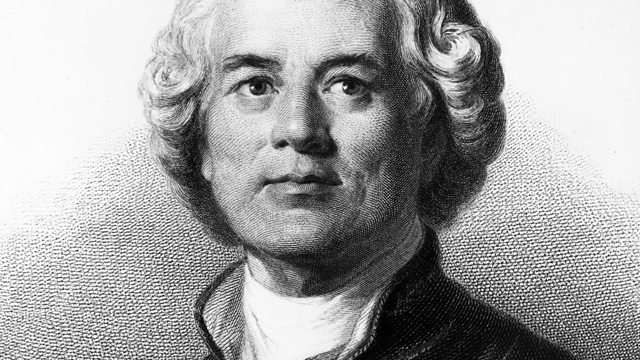
Gluck's Pre-Reform Operas
Donald Macleod focuses on stage works Gluck produced before he created his revolutionary opera Orpheus and Euridice.
Donald Macleod describes himself as "a huge fan" of the music of this week's Composer of the Week, Christoph Willibald Gluck, probably best known today as the composer of Orfeo's lament, 'Che faro senza Euridice?', recorded by generations of singers. Gluck also has the reputation of being the man who 'reformed' opera in the second half of the 18th century, rescuing it from the ludicrous excesses of the high-flown Italian opera seria style that had become a vehicle for overpaid warblers to show off their vocal agility. "I sought to retract music", said Gluck, "to its true function of helping poetry to be expressive and to represent the situations of the plot, without interrupting the action or cooling its impetus with useless and unwanted ornaments." All this week, Donald Macleod explores the life and work of this extraordinary composer, the sheer quality of whose music is often overshadowed by his reputation as an innovator.
Gluck may be known as one of the key reformers of operatic history, but reforms don't spring out of thin air, so in today's programme Donald explores a handful of the 30-odd stage-works Gluck turned out before he was ready to create his game-changing opera Orpheus and Euridice. Four of them - The Duped Judge, The Chinese Women, The Dance and Innocence Justified - were written for Vienna, where in 1755 Gluck secured the first of several court appointments. The fifth, Ezio, was written several years earlier for Pietro Mingotti's travelling opera troupe, an upmarket outfit who put on shows for royal weddings and other such gala events; at this point Gluck was essentially a composer of no fixed abode, though a tolerably successful one.
Last on
Music Played
-
![]()
Christoph Willibald Gluck
L' Innocenza giustificata
Orchestra: Cappella Coloniensis. Director: Christopher Moulds.- DEUTSCHE GRAMMOPHON : 82876 58796-2.
- DEUTSCHE GRAMMOPHON.
- 5.
-
![]()
Christoph Willibald Gluck
Der betrogene Kadi
Conductor: Otmar Suitner. Ensemble: Bavarian State Orchestra.- EMI.
-
![]()
Christoph Willibald Gluck
Ezio - opera in 3 acts: Act 2
Singer: Ann Hallenberg. Ensemble: Il Complesso Barocco. Director: Alan Curtis.- VIRGIN CLASSICS : 50999 0709292 3.
- VIRGIN CLASSICS.
- 13.
-
![]()
Christoph Willibald Gluck
Ezio - opera in 3 acts: Act 1
Singer: Sonia Prina. Singer: Max Emanuel Cenčić. Singer: Ann Hallenberg. Singer: Topi Lehtipuu. Singer: Julian Prégardien. Ensemble: Il Complesso Barocco. Director: Alan Curtis. Singer: Mayuko Karasawa.- VIRGIN CLASSICS : 50999-070-929-2-3.
- VIRGIN CLASSICS.
- 11.
-
![]()
Christoph Willibald Gluck
La danza (1755) – Sinfonia
Conductor: Tomasz Bugaj. Ensemble: Orchestra of the Warsaw Chamber Opera.- Orfeo.
-
![]()
Christoph Willibald Gluck
Le Cinesi - opera in 1 act: Prenditi il figilio..! & Ad un riso, ad un'occhiata
Performer: Schola Cantorum Basiliensis Orchestra. Conductor: René Jacobs. Singer: Gloria Banditelli.- EMI : CDC-7 47752 2.
- EMI.
Broadcasts
- Tue 10 Sep 2013 12:00���˿��� Radio 3
- Tue 10 Sep 2013 18:30���˿��� Radio 3
- Tue 17 Jun 2014 12:00���˿��� Radio 3
- Tue 17 Jun 2014 18:30���˿��� Radio 3
Beethoven Unleashed – the box set
What was really wrong with Beethoven?
Composers A to Z
Who knew? Five eye-opening stories from Composer of the Week
Five reasons why we love Parry's Jerusalem
What is the strange power of Jerusalem which makes strong men weep?
A man out of time – why Parry's music and ideas were at odds with his image...
The composer of Jerusalem was very far from the conservative figure his image suggests.
Composer Help Page
Find resources and contacts for composers from within the classical music industry.





